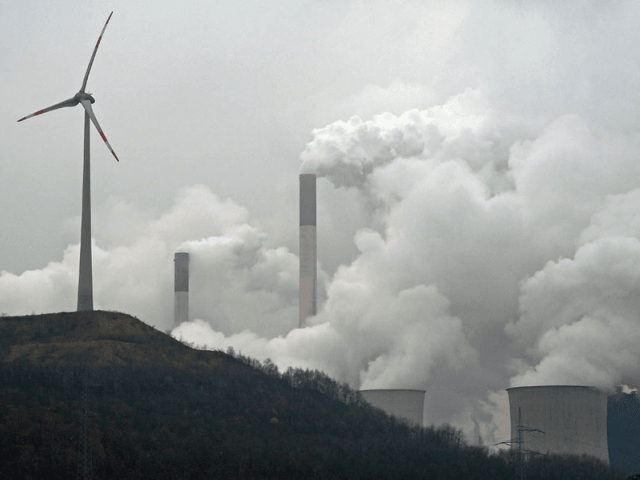China most definitely had some work to do at improving air quality, with the ashtray skies of major cities having become a constant source of both embarrassment and illness, but the authoritarian government found it necessary to reverse a recent ban on coal because the peasants were freezing.
Bloomberg Politics reports on the dismal conditions in exurban Beijing, China:
As the icy winds of northern China seeped through Liu Yinguang’s single-pane windows, the new gas-fired heater in the kitchen sat idle: there was no gas.
The 59-year-old laborer was among hundreds in Lirangdian village, south of Beijing, who had been waiting months for gas since the Communist Party banned coal to ease the region’s infamous smog. When Liu complained that his 8-year-old grandson couldn’t sleep through nights as cold as minus 9 degrees Celsius (16 degrees Fahrenheit), one local official told him to “wait patiently.”
Authorities eventually relented earlier this month and let villagers burn coal again. But Liu’s anger was still fresh during a visit to Lirangdian on Friday.
“The regular people are at the bottom of society — the peasants are the lowest,” he said. “The party is on top.”
That is not what President Xi Jinping, freshly canonized by the Communist Party Congress as an all-powerful champion of the people, wants to hear right now. This was not some local out-of-touch government stumbling with badly conceived regulations; it was a nationwide ban on coal. Local officials were given firm performance incentives for getting rid of coal heating in rural households. They ended up eliminating over 2.5 million of them when the original plan called for eliminating 1.8 million.
Those who can get access to natural gas are paying over twice as much to heat their homes and worrying about supplies of gas running out. In the hinterlands, where it is too cold to even dig the trenches needed for gas pipelines, the peasants are grumbling that no one cares about their “crappy villages” because no high-powered politicians live there.
The New Zealand Herald cites “stories about schoolchildren suffering frostbite because of the lack of heating in their classrooms to explain why the government is “frantically backpedaling” on the coal ban. The BBC reports children at one school moved outside because it was warmer in the sunlight, and they were encouraged to bring corncobs to class so they could be burned for warmth.
“We are frozen to death. Please help us,” one rural Chinese resident said in a social media post quoted by the BBC.
“None of this should be too surprising. The original pollution problem, the heavy-handed attempt to solve it, and the subsequent U-turn when the flaws of the clean-up policy hit home all stem from the same root: China’s governance system, the distorted incentives it creates, and the warped outcomes they lead to,” the New Zealand Herald argues, portraying the situation as an example of how central planning and cumbersome bureaucracy do a lousy job of balancing competing interests, such as economic growth and pollution. In this account, the coal ban was a clumsy last-ditch effort to meet annual pollution reduction targets.
“As long as Beijing continues to govern by diktat, attempting to manage the supply side of the economy in order to hit arbitrary and often impractical targets, it will continue to encounter similar difficulties,” the Herald predicts. “A more sensible solution would be to forswear direct intervention and instead allow natural demand to do its work within the framework of a predictably regulated market.”
The Associated Press reports that Chinese authorities have been commandeering natural gas from chemical plants and factories to heat homes, causing some of the plants to shut down. Some of these shutdowns are affecting international manufacturing projects.
“The situation is quite serious due to the suspension of gas supplies to industrial and commercial consumers in hopes of meeting the demand from civilian use,” said Shanghai-based gas industry analyst Chen Yunying.
The AP article quotes Chinese media expressing hope that heavy imports of gas from Russia through new pipelines will be able to make up for this year’s supply shortages. At the same time, China’s transition away from coal is expected to knock 16 percent off benchmark coal prices next year in Europe.

COMMENTS
Please let us know if you're having issues with commenting.